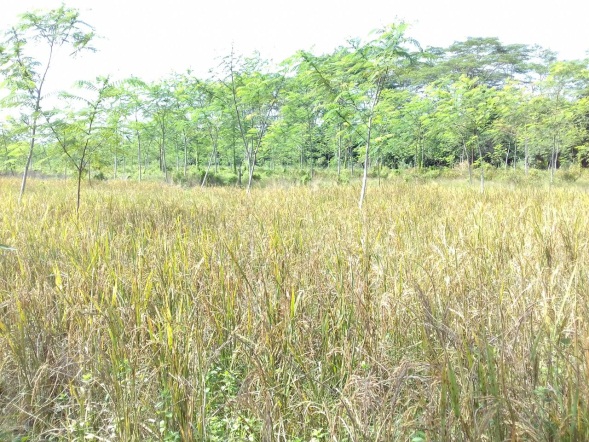Moving towards plantation: The impact of non-burning agricultural policy on land use and farmers' income in Pulang Pisau Regency, Central Kalimantan
DOI:
https://doi.org/10.62090/zpfze055Keywords:
fires, land use, native farmers, non-fire agricultural policy, transmigrant farmersAbstract
Farmers in Central Kalimantan are accustomed to using fire in a limited and controlled way to clear the land before cultivation. This slash-and-burn was initially legal under Governor's Decree No. 52/2008 until it was completely banned following the major fires in 2015. This study examines the effects of the fire ban on land use and farmers' revenue in the Pulang Pisau regency. Data was collected through interviews and field observations. Respondents were selected from two villages, namely Talio Muara (transmigration village) and Pangkoh Hulu (native village), with 15 respondents for each village. In Talio Muara, there was a remarkable change in land utilization: agricultural land decreased by -44%, plantation land increased by 20%, and unmanaged land increased by 24%. In Pangkoh Hulu, the agricultural land decreased by -20%, while the plantation land increased by 17% and the unmanaged land increased by 3%. Farmers' revenue from land utilization in Talio Muara village decreased by -8% in 2017 compared to 2014, while in Pangkoh Hulu village increased by 13% in the same period. These results indicate that local farmers have adapted better to the burning ban than the transmigrants.
Downloads

Downloads
Published
Issue
Section
License
Copyright (c) 2023 Agung Wibowo, Fernando Lumban Bantu, Nursiah, Yusuf Aguswan (Author)

This work is licensed under a Creative Commons Attribution-NonCommercial-ShareAlike 4.0 International License.









